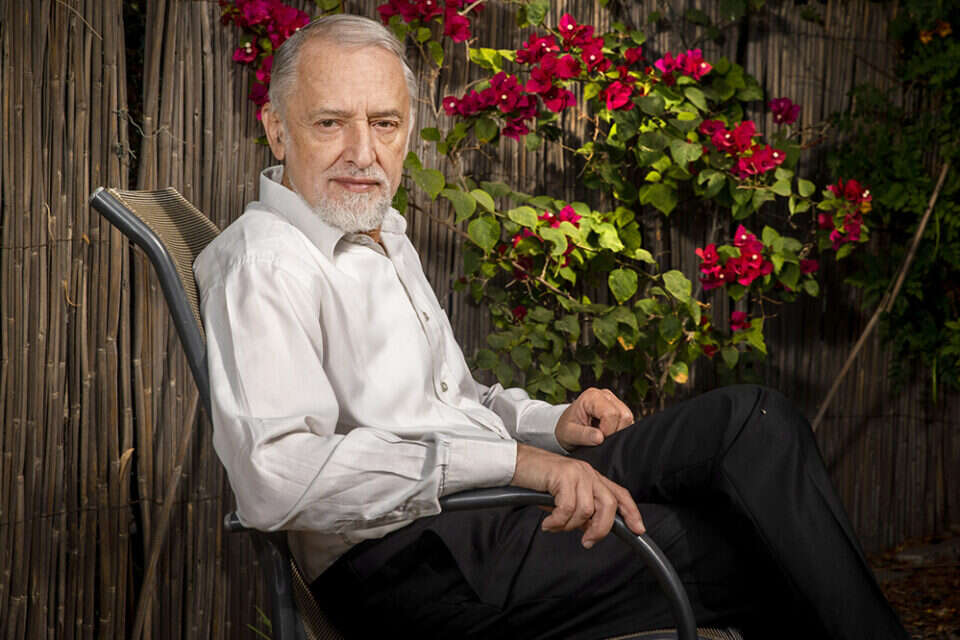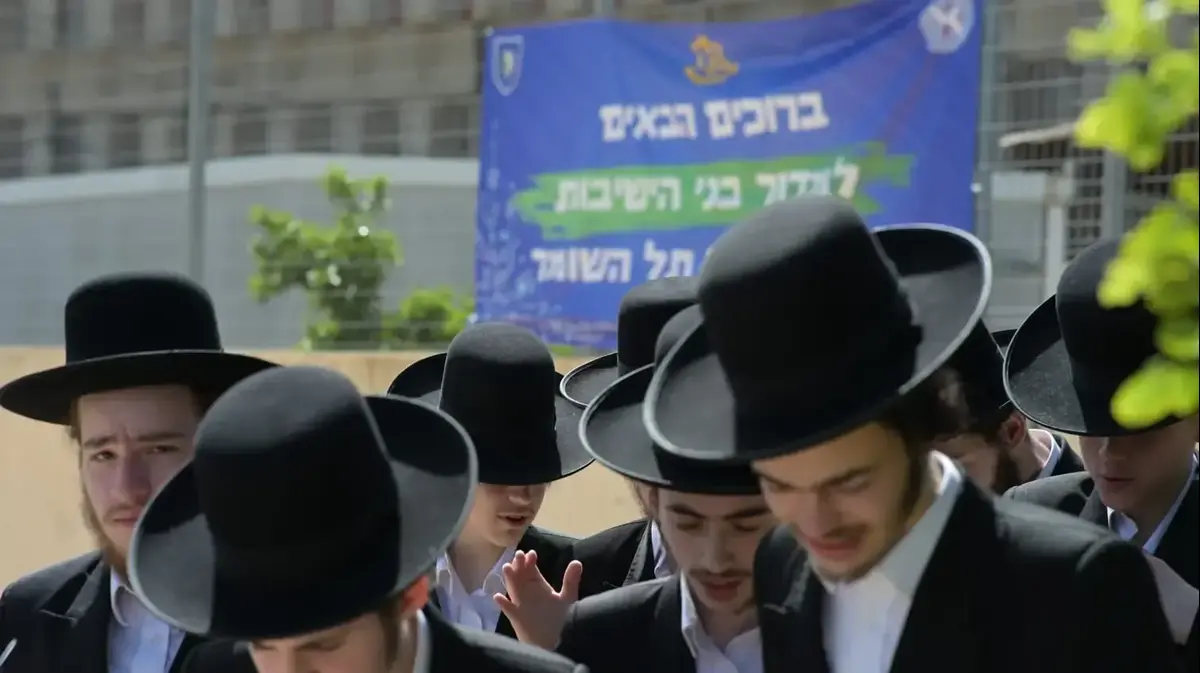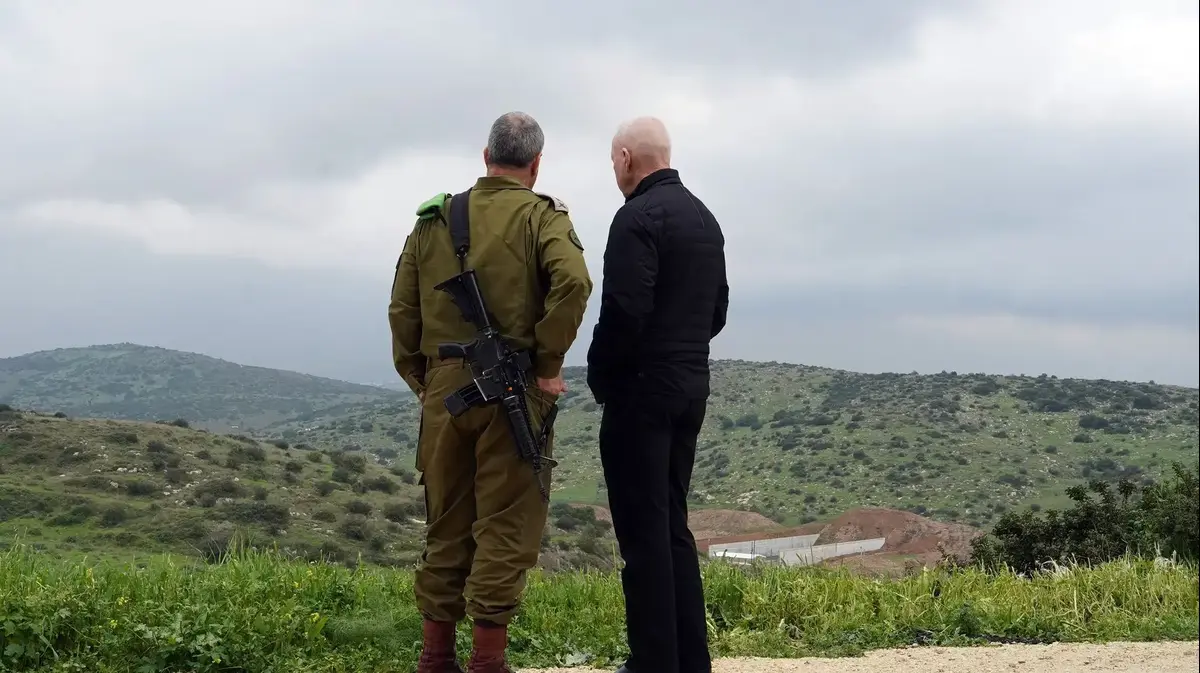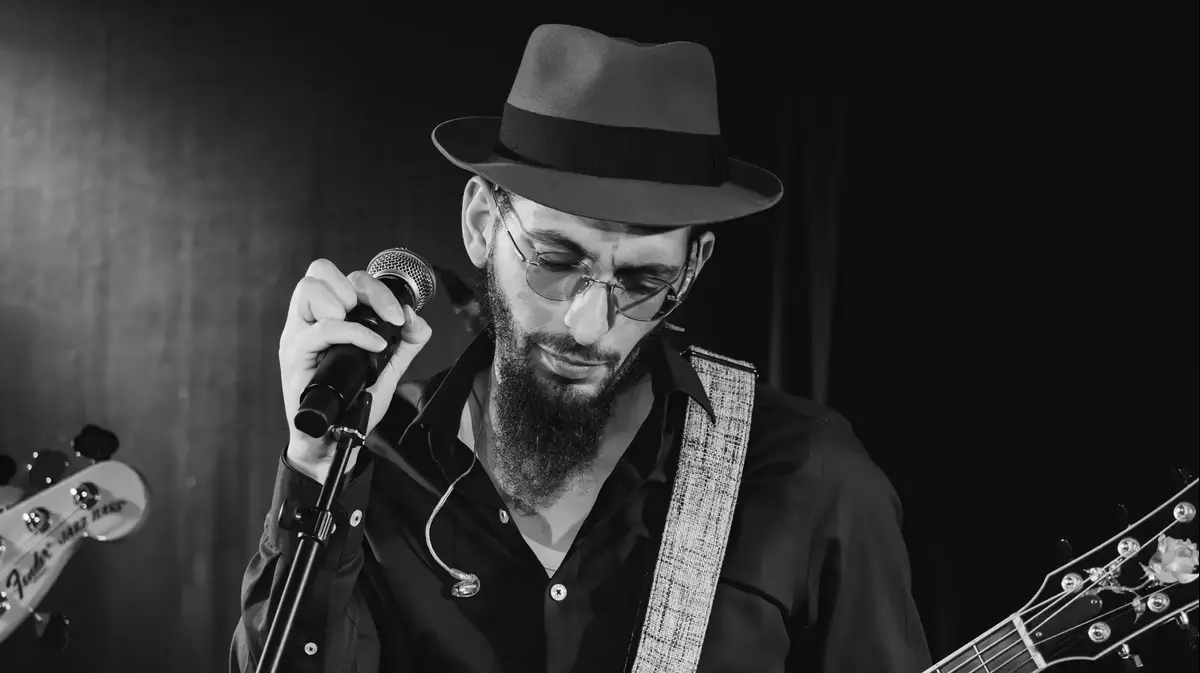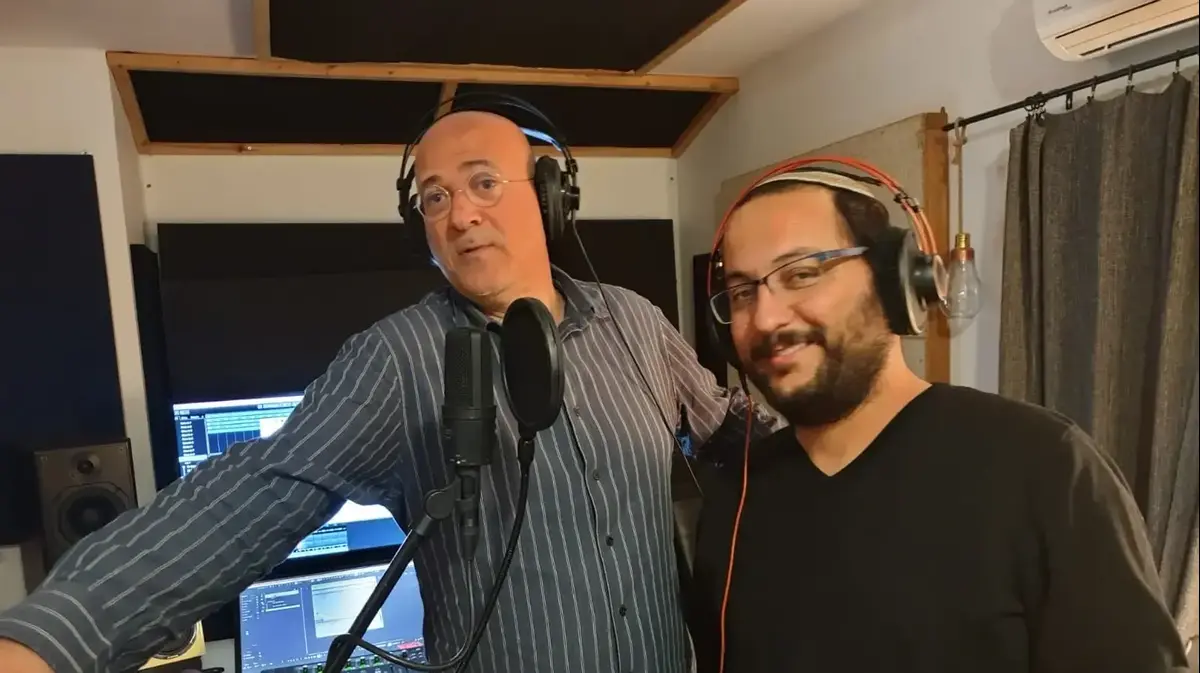On the morning of June 5, 1980, Alexander Kholmiansky was shocked by the ringing of the telephone in his Moscow apartment.
It was his 30th birthday, and only a strange silence came from the receiver.
Five minutes later another bell rang, this time at the door.
A man in civilian clothes standing there waved his KGB certificate and hissed: "We have a serious matter with you, Alexander.
Get dressed, you're coming with us. "
So that Judaism will speak aloud: Ephraim Kholmiansky recounts his days in the Jewish underground in Moscow
More than 40 years after being brought to the regional headquarters of the Soviet Security Service, Kholmianski recalled the first question he heard there.
"So tell us, Alexander, what organization do you say you head?"
Turn to the young Jew who appears to be an authoritative officer.
The question was so surprising that Alexander lost his ability to speak for a few moments, and instead of words burst into laughter of ridicule.
Laughter was the last thing they used to hear in that room.
In the Communist Empire of Evil, the charge of anti-Soviet organization — not to mention its leadership role — holds one future: long-term incarceration in its many camps and prisons.
According to Kholmiansky, there were two schools of thought that recommended how to deal with KGB threats and such "conversations" with representatives of the secret police. Informal “conversations” with the KGB as a formal investigation, and sticking to the topic for which it was summoned, ignoring the other party’s attempt to elicit more information by navigating the conversation to seemingly innocent topics.
The fathers of the second approach, Gennady and Natalia Hussein, who refused to immigrate and were Jewish activists, argued that one should talk as little as possible, give random and meaningless answers or repeat the same answer over and over again, regardless of the "conversation", in order to show the KGB and it is better to let you alone.
Kholmyansky choose the first approach, and during the following hours investigator and suspect chatted in a long but fruitless, built KGB attempts to scare people, young and attempts to explain his actions in front of him did not exceed Hebrew lessons innocent. When the game tired the researcher, he approached the matter: "You are working to strengthen the military and economic power of the Zionist aggressor, the front post of world imperialism, a country with which we do not even have diplomatic relations! We are watching you for more than a year, waiting for you to stop, "A limit. But our patience has a limit. You're on the same dead end track as Sharansky's, and you'll end up in the same place he is."
Kholmiansky with his family and the permit to immigrate to Israel, 1987,
Destruction of national emotion
Nathan Sharansky had at that time served more than three years out of the 13 years of imprisonment he had been sentenced to, so the warning did not require interpretation.
Nevertheless, the researcher decided that the hard-hearted Jew in front of him would not be harmed by another, final explanation.
"Do you really think you can fight us? Defeat us? I urge you to read carefully the Penal Code, especially sections 64, 70 and 190," the KGB man threw at Kholmiansky before he was allowed to leave the room.
Alexander admits that in those moments he felt as if something had grabbed him by the throat, and he was having trouble breathing.
The grim meaning of the three sections, and the harsh punishments they entailed, were hinted at in their headlines: betrayal, anti-Soviet propaganda, and deliberate slander of the Soviet regime.
But if the KGB thought that the intimidation would divert Kholmiansky from the way he went before the "conversation", they would very quickly have had to admit their mistake. Jew of the USSR - Presumably his 30th birthday would have become the first day of his imprisonment.
Kholmiansky's book of remembrance was recently published in the United States in English, giving his first name to Ephraim. The book "The Voice of Silence: The Story of the Jewish Underground in the USSR" Reveals new details about the struggle of the members of the Jewish underground in the USSR, who tried to inspire spirit and national consciousness among the Jews of the Soviet Empire, about the war they waged against the oiled machine of the KGB, and the price they had to pay. Everything imaginable so that Soviet Jewry would begin to speak aloud, and preferably in Hebrew.
"Five months before the KGB was summoned, Yuli Koshrovsky, Yuli Edelstein, my brother Misha and I managed to meet in a place that, unlike each of our apartments, was not full of KGB listening devices, and summed up how to launch the cities project," recalls Kholmiansky. "We decided to establish a secret system for teaching Hebrew outside of Moscow and Leningrad, in the large and small cities scattered over a vast area, where most of the Jews lived."
Geographical dispersal was the smallest of the obstacles faced by the brave quartet.
The Soviet authorities banned the teaching of Hebrew, mainly because the teaching of the language led to the awakening of national Jewish feelings.
Authorities became accustomed to the idea that several hundred "crazy" Jews were learning the sacred language in Moscow and Leningrad - these pockets of resistance were easy to monitor, and their existence served as a justification for the KGB's "care" department. Jewish identity will erupt uncontrollably, like wildfire, in dozens of other places.
With Yuli Edelstein (right) and Rabbi Haskel Lockstein,
"Language united us"
Koshrovsky, Edelstein and the Khulmianski brothers shared responsibilities.
The first had to be in contact with foreign parties in Israel and the Jewish world, receive the study materials from them and coordinate them.
Edelstein was tasked with establishing teaching infrastructure in Ukrainian Kharkov and Minsk, Belarus, and later throughout Belarus.
Misha Kholmiansky received under his auspices Leningrad and the Baltic republics, while in his brother Alexander's fell the really large territories - the south of Ukraine, Moldova, Central Asia and the Caucasus. In time he took on more and more cities, until he became the unofficial person in charge of the whole project. After debating and not sleeping at night for three months, Kholmiansky came to the realization - despite the enormous risk - that this was the task that awaited him.
How did you act without leaving a trace?
"Although there was no safe means of communication, everyone was supervised by the KGB, we managed to keep the project secret until we made it public, close to the dissolution of the USSR. We set up the network for teaching Hebrew in 20 cities, and it included hundreds of students. Each of them in turn became a center of attraction for others, even if they did not study directly with us. This result could not be achieved without compartmentalization and underground discipline. In fact, in a situation where you can not call or even send a letter, there is no escape That's what I did. We taught ourselves, located students, found and trained suitable migrant teachers who could travel around the country without arousing the KGB's interest, and made sure to provide everyone with study materials.
"I then discovered for myself that Hebrew is a kind of platform for all Jewish civilization, and what unites us. Through language, each of our students found what was important to him - some the Jewish history, others the religious aspects, and all found Israel. Above all, teaching Hebrew was the means of struggle. "In the Soviet regime, because it can not justify, especially in the eyes of the international community, its desire to stifle innocent educational activities such as language learning."
Still, the KGB did not sit idly by.
"They had different methods of psychological pressure in order to subdue us.
Summoning relatives and acquaintances to horrible 'calls' on the phone, overt surveillance, as if to signal that the arrest is only a matter of time.
In the spring of 1984 I transferred the reins of managing the city project to my successors, Dov Contorer and Zeev Geisel.
A few months later I went to Estonia to teach Hebrew for the last time.
I felt it was my swan song, and I was not mistaken.
In Estonia I was arrested on a ‘hooliganism’ charge and taken to Tallinn Prison.
For almost a month I sat in a cell with two dubbers, without really being questioned.
"Apparently during this period, someone in the KGB thought and thought what kind of bag should be sewn for me in order to produce a showcase with a world-wide resonance."
The KGB went on a false indictment. After a month of idleness in the cell, Halomiansky was brought before a team of investigators of serious crimes who had come especially from Moscow, and they informed him: a search of your apartment turned up a gun, ammunition and anti-Soviet literature.
"At that moment I felt that my path in this world was over, as if what was happening was a film and not a reality," admits Kholmiansky. "But after I was returned to the cell, I began to internalize the situation. I realized that the show trial that was being prepared for me was aimed at overthrowing the entire Jewish awakening in the USSR, and I made a decision: I will not give up and I will not be a submissive victim. I ended up declaring a hunger strike. "
Thus began a struggle between a lone prisoner armed with willpower only, in the face of a mechanism of oppression suppressed by endless means of oppression.
For his refusal to eat Khuliansky was thrown into a dungeon, a tiny, cold cubicle, containing only a bunk made of rough board inside an iron frame.
At five in the morning the bunk was folded, and the prisoner could not sit or lie down.
He was also not given warm clothes or bedding.
"Get out of the dungeon in two situations: either you die, or you stop the strike," the prison commander also made it clear to him.
Prison authorities knew that 15 days in a dungeon was enough to break the hardest nut.
They kept bringing him food day after day, to no avail.
When the 15 days ended, it was decided to force-feed it.
You will die anyway, they explained to him, only your death will be slower and harder.
But Kholmianski went on his own - neither helping nor abusing the authorities on behalf of the authorities.
The cell window in which Kholmiansky was imprisoned,
Sweet victory
After two months of hunger strike he had difficulty walking.
"At that point I often said to myself: You have come a very long way. Maybe you can continue for another hour? After an hour again, maybe you can continue for another hour? And so without end."
The KGB apparently realized that they would not receive a show trial, and the international pressure following the arrest of a male Hebrew teacher. He was sentenced to many years in prison, a mere 18 months. Believe it or not, for the Jewish prisoner who continued to go on hunger strike, this sentence was a sweet victory.
"After the trial, they tried to force me to appeal," Kholmiansky explains.
"It was a trap, to start the whole trial all over again. To get revenge they stopped forcibly feeding me, and I announced that from that moment on I would also refrain from drinking."
Towards the end of the fifth day of a full hunger strike Kholmiansky was close to losing consciousness.
He began to bleed, and was no longer able to understand the shouts of the prison commanders, who broke into his dungeon and personally supervised his transfer to the clinic.
Before him was another full year in a remote prison camp, in the company of criminal prisoners of the worst kind, but in this class even his opponents internalized their loss.
"In December 1987, a year and a half after I returned from prison for underground Jewish activity, we heard noises from the nearby apartment," Kholmiansky concludes.
"Someone scratched the wall, and then a strong smell of fresh paint spread. We first assumed the neighbors were starting to renovate. But the noises from this apartment stopped, and in their place noises started from all the nearby apartments. The drilling sounds came from everywhere, even from the ceiling.
"I remembered a story my mother told me. After I was arrested, a guest from Denmark, a listening expert, visited our apartment. He smuggled pieces of equipment into the USSR and assembled an eavesdropping device.
First of all he of course discovered that his hotel room had been blown up in them, and then did a similar service for those who refused to immigrate.
"After scanning our apartment, he told the family: 'The KGB took you seriously.
If you were to get all the money they spent to eavesdrop on you, you would never have to work. '
And now I suddenly realized: they are dismantling the listening equipment, which means releasing us to Israel! "
Demonstrations of support for the world and lobbying by politicians from the United States, Australia and Britain were of course helpful, but above all - Kholmiansky's own determination gnawed at the Iron Wall and broke it. followed.
hardships of prison remained in his body and his mind, but not his soul. "the KGB would assure my mother that if she continues to mobilize support, it will lose the second son, and basically the whole family," says Kholmyansky and smiling.
"They were wrong. We won."
Were we wrong?
Fixed!
If you found an error in the article, we'll be happy for you to share it with us

